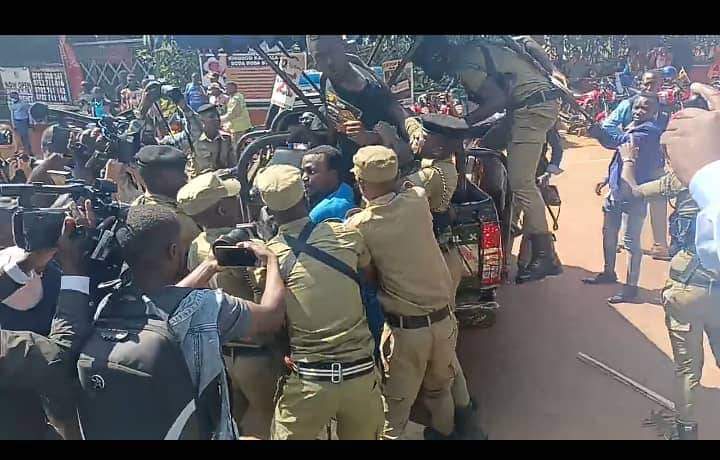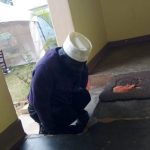Several student activists have been arrested as they made their way to the European Union (EU) offices to deliver their petition about the East African Crude Oil Pipeline (EACOP).
Led by Nabuyanda John Solomon, a Forum for Democratic Change (FDC) Youth League Member, the group backs the EU parliament resolution calling for stopping the implementation of the EACOP project.
According to the petitioners, there are legal irregularities in the EACOP project. There are no members of parliament involved in the project and the Ugandan companies involved are listed in the UK.
“There is a gross violation of human rights in Uganda and that was also evidenced at the EU offices as we delivered our petition. Our colleagues have been arrested,” Nabuyanda said.
The activists claimed that there is public anxiety that several people have been displaced from their land without compensation to pave way for the EACOP project.
“There are potential risks as far as this project is concerned. The companies involved in the construction of EACOP have not insured Uganda that is going to be affected by the pipeline,” they said.
“We want the government of Uganda to reinstate the Civil Society Organizations that was recently closed by the government for allegedly investigating the EACOP project.”
Last month, the EU parliament passed a resolution calling on TotalEnergies to take one year before launching the 1445-kilometer East African Crude Oil Pipeline (EACOP) project to study the feasibility of an alternative route to better safeguard protected and sensitive ecosystems and the water resources of Uganda and Tanzania.
According to the resolution, EU parliament claimed that the project will generate up to 34 million tonnes of carbon emissions per year yet the International Energy Agency (IEA) warned in a 2021 report that limiting global warming to 1.5 °C to prevent climate change’s most destructive impacts would require new oil and gas development to stop immediately.
They also said nearly 118, 000 people are affected by the oil projects. Their homes were destroyed to facilitate the construction of access roads; their land was requisitioned without prior payment of fair and adequate compensation. The compensation paid is often far too low to allow farmers whose land has been expropriated to buy comparable land on which to continue farming.
“EU Parliament asks the authorities in Uganda and Tanzania to ensure human rights advocates, journalists, and civil society groups are free to carry out their work in at-risk communities and called for all arbitrarily arrested human rights defenders to be released immediately,” they said.








